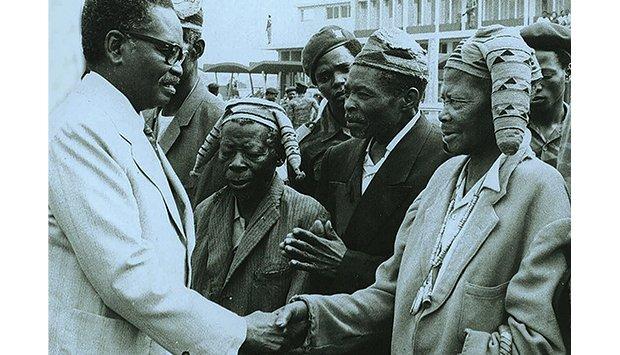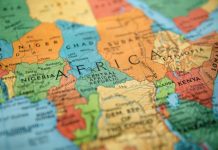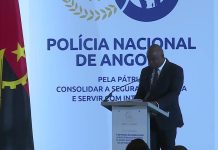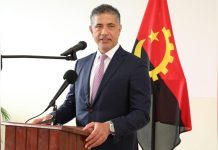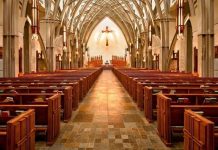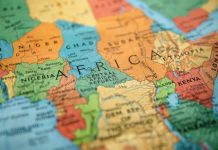Africa-Press – Angola. In his multifaceted personality as a student, political prisoner, poet, doctor, guerrilla and statesman, António Agostinho Neto experienced, in the course of his life, moments of great bitterness that he knew how to “put deep into the depths of his soul”.
The removal of the family, the interruption of studies, the deprivation of liberty, the cellular incommunicado regime and torture, racial prejudice, insults, the abandonment of some friends and comrades in arms, all supported Agostinho Neto in his journey towards the greater ideal – the liberation of the Angolan people.
Many of these moments, suffered in silence in the solitude of prison in cold and distant Europe, will never be fully known in posterity.
I will not comment on painful moments like these, which the history of colonialism and oppression in Africa and in the rest of the world is full of. It is only important to emphasize that Agostinho Neto came out of them stronger, more committed and determined to take risks than the fight in which he was committed demanded.
I will thus evoke what I call five sublime moments, of the many that happened in his eventful and intense life, in his troubled life as a combatant against oppression and in favor of human dignity. These are moments of glory and redemption, after the ordeal of police persecution, legal proceedings, exile on islands lost between sky and sea.
1st Moment: July 1962
“This moment is indescribable for me, as I return to the African continent, where there is a daily struggle against colonialism and neo-colonialism. I have the great pleasure of sending to the Nationalist Movements for the liberation of the Portuguese colonies, and essentially to the Movements that operating in Angola, Guinea and Mozambique, my fraternal greetings from a comrade in the struggle who has just been released from the prisons of the Portuguese fascist government and who intends to continue fighting colonialism. I pay the most sincere tribute to the guerrillas who have fallen on the battlefield and in prisons, to prisoners, exiles and all the militants of the noble struggle for the development of African nations under Portuguese colonial rule.
I heard that they hope to quickly end this struggle in which we are fighting oppression and exploitation.
The necessary conditions for our victory are unity and a firm determination to eliminate foreign domination from our countries, even if this is very costly. These conditions, which are the objectives of the Movements grouped in CONCP (Conference of Nationalist Organizations of the Portuguese Colonies), are the best guarantee of our victory. To our allies in the war against the barbarism of colonialism, among which I count the Portuguese progressive and democratic organizations in the world, to whose effort I owe my liberation, I send a fraternal hug, aware that the fight against the exploitation of man by man, anywhere in the world, is a direct contribution to our liberation”.
This vibrant message sent by Agostinho Neto upon his arrival in Morocco, in July 1962, is very clear about the reasons that determined his evasion from Portugal, about his firm intention to continue the fight until the last consequences and about the indispensable alliances to be established within the framework of this common struggle against colonialism and exploitation.
At the same time, Agostinho Neto makes clear, in this brief greeting, his quality as a revolutionary, as he expresses his gratitude to thousands of nationalists for the sacrifices made, both on the battlefield and in prisons or in exile, and gratitude to those who directly or indirectly contributed to his liberation from the concentrationary universe to which he had been confined until then.
From then on, a new stage in the national liberation struggle opened, which Agostinho Neto predicted was already extremely tough. Behind were the prisons, the pain of exile and the deportations, but the road ahead would not be a bed of roses. Agostinho Neto, definitely free, was well aware that the way to go would be strewn with misunderstandings, intrigues, suspicions of infiltration, betrayals.
Agostinho Neto had traced this itinerary a long time ago, when, still in 1949, he wrote these premonitory lines from the poem “Don’t ask me for smiles”:
“I didn’t discover myself in life and clear jungles hide the paths I have to go through, but I will find them and follow them, whatever the cost”.
He was convinced of his ideal and decided not to turn his back on the fight, until the victory that would come to smile with independence, 13 years later, on November 11, 1975.
2nd Moment: February 1974
In 1974, the national liberation struggle in the territories under Portuguese domination was at its height. Despite the successive contingents of troops sent overseas, despite the important financial support and military material received from NATO member countries and allies such as South Africa, Portugal could not envision a time horizon for the end of the war. Resources were exhausted with the lives of countless soldiers, which caused a growing malaise in Portuguese society in general and, above all, among the families of the victims of the war. Discontent was also growing in the ranks of the Portuguese army itself, particularly among the young officers, torn from universities and thrown into a war with no end in sight.
It became increasingly clear that after the liberation of Angola, Guinea-Bissau and Mozambique, the colonial regimes in South West Africa, Southern Rhodesia and the hideous apartheid system in South Africa would be more vulnerable.
The independence of the territories that constituted the Portuguese colonial empire was a harbinger of the imminent overthrow of the last bastions of colonialism and racial discrimination in sub-Saharan Africa, taking a decisive step towards the total liberation of Africa.
Agostinho Neto became one of the most prominent heralds of independence – along with Amílcar Cabral, Samora Machel, Lúcio Lara and Marcelino dos Santos – endowed with a firm character, unusual tenacity, unshakable confidence in the triumph of his ideals, qualities allied to an attitude exemplary in the conduct of the struggle with a view to achieving the objectives set.
Aware of the decisive stage reached by the national liberation movement in the Portuguese colonies, Agostinho Neto delivers, in February 1974, a masterful speech at the University of Dar-es-Salaam (Tanzania), where he defines the enemy, characterizing his actions and subtleties. at the diplomatic level and in the very scenario of the war, it accurately outlines the objective of the armed struggle and the African and world political context and its implications for the ongoing armed struggle, realistically addresses the not always consistent link of most African countries to the ideal of the liberation of our continent and the granting of unconditional support to the movements in struggle.
This intervention is very important and, to a certain extent, predicts the future, because, in addition to theorizing about the liberation movement in relation to the historical moment of its days, it slightly opens the door on what in our time will come to be called the phenomenon of globalization.
It also addresses, in a clear way, the incidence of racial problems in the liberation movements in Africa, analyzes from a critical point of view the literary concept of blackness and the negative derivations that emerged within it, which, as Neto already predicted, would lead him to to stagnation, it situates the struggles of blacks for equal rights in the United States of America and Brazil and in relation to the liberation movement.
In this regard, the passages of the aforementioned intervention are illustrative, which I transcribe below:
“The national liberation struggle in Africa, in my opinion, cannot be disconnected from the current context in which it takes place, nor can it be isolated from the world. A workers’ strike in England, the imposition of fascism on the Chilean people or an explosion in the Pacific, are phenomena of the same life that we are living, through which we seek ways to a happy existence for man on Earth. The universal fact is therefore particularized in Africa, through current formulations on the political economic and cultural.
The historical ties that bind our peoples to the other peoples of the world will become ever closer, since there can be no other trend on Earth.
Isolation is impossible and is contrary to the idea of technical, cultural and political progress”.
And further on, I would say:
“The liberation struggle at our stage is therefore informed not only by the historical factors that determined colonialism, neo-colonialism or racist regimes, but also by the perspectives, objectives and way of conceiving the world, life.
Therefore, the importance of national liberation movements is much greater than is generally accepted, because through their activity they become accelerators of history, of the development of society in which they operate and outside of them, even those that appear in politically independent countries. ”.
Regarding the objectives of the fight, Agostinho Neto made the following definition:
“The people’s struggle for political power, for economic independence, for the restoration of cultural life, for de-alienation, for relations with all peoples, on a basis of equality and fraternity, these are the objectives of our struggle”.
As for the non-racial character of the struggle, Neto would say:
“But allow me also to reject any idea that wants to transform the national liberation struggle in Angola into a racial struggle. I would say that in Angola it also takes on a racial aspect, because discrimination takes place, a struggle against the colonial system and its main ally, imperialism.
I also reject the idea of black liberation, at a time when the unity of Africa is one of the universally accepted principles of the OAU and knowing that in Africa there are Arab peoples, there are areas that are not black. The problem cannot be purely racial. As long as there is imperialism, there is the possibility of continuing capitalism” (end of citation).
In the context of the contemporary world where the Cold War ended, the division into blocs was eliminated, where the world lives a unipolar hegemony exercised over other countries on the basis of unilateralism and the UN is stripped of some of its powers, the truth contained in many of these concepts remains current.
3rd Moment: November 1975
When, at zero o’clock, on November 11, 1975, Agostinho Neto proclaimed, before Africa and the World, the Independence of the People’s Republic of Angola, the Angolan capital was under the fierce siege of the ELNA (FNLA army) and FALA (UNITA army), in collusion with regular armies from foreign countries and mercenaries of various origins, in blatant interference. There were then dramatic moments of intense anxiety, known that it was the intention of the invaders to advance to Luanda and, in this way, prevent the proclamation of independence by the MPLA. This advance had been fought a few kilometers from Luanda, in the famous Battle of Kifangondo, where FAPLA, with the support of Cuban fighters and some supplies of war material, managed to stop the enemies’ progression, imposing a resounding defeat on them from which they would never recover.
The enemy’s commitment to overthrow the Government installed by the MPLA, would force, a few years later, the organization of an expedition of regular forces of the Cuban army, duly experienced and equipped, in an action called “Operation Carlota”, carried out under agreements in the meantime sealed between the Government of the People’s Republic of Angola and the Socialist Republic of Cuba. The role personally assumed by Commander Fidel Castro and the Cuban Revolution, at a time when it was already under an implacable blockade, in defense of the young independent country, in the grip, from the first hours of its existence, with a huge foreign invasion of the night of 10 November were therefore marked by a feverish atmosphere of great enthusiasm and exalting patriotism.
The Largo 1º de Maio, today called “Praça da Independência”, swarmed with men, women and children, patriots eager to witness the arrival of liberation, young fighters and guerrilla veterans, political prisoners shortly before released from colonial prisons, exiled finally returned to the country, all hoping to hear, through the voice of Agostinho Neto, the historic speech in which independence and the constitution of the country would be proclaimed in the People’s Republic of Angola, “an expression of the popular will and the result of the great sacrifice of the combatants of national liberation ”.
In this intervention, Agostinho Neto would later declare:
“In December 1956, in the Manifesto of its foundation, the MPLA already stressed its unwavering determination to fight, by all means, for the complete independence of Angola, stating – “colonialism will not fall without a fight. That is why the Angolan people will only be able to free themselves through a revolutionary war. And this will only be victorious with the realization of a united front of all anti-imperialist forces in Angola, which is not linked to color, social situation, religious creeds and individual tendencies; will be victorious thanks to the formation of a vast POPULAR MOVEMENT FOR THE LIBERATION OF ANGOLA” (transcription of the Manifesto).
The long road traveled represents the heroic history of a people that under the unitary and correct guidance of its vanguard, relying solely on its own forces, decided to fight for the right to be free and independent”.
The masterful speech of the proclamation of independence outlined the government program in which the newborn country would apply its resources and energies, stressing, from the outset, the need to fight for economic independence, defined as “a constant of its strategy”.
In addition to thanking “the help provided by all friendly peoples and countries to our heroic struggle for national liberation”, Agostinho Neto immediately assumes a commitment in terms of foreign policy, which will mark the entire course of the young independent country, when stating:
“The People’s Republic of Angola, aware of its importance and its responsibilities in the context of Southern Africa and the world, reiterates its solidarity with all the oppressed peoples of the world, especially the peoples of Zimbabwe and Namibia against racist domination. The people of Angola, under the guidance of its revolutionary vanguard, the MPLA, express their militant solidarity with the people of South Africa, in their struggle against the racist regime that oppresses them”.
The path to be followed in the following years was outlined under the leadership of the first President of the Republic, António Agostinho Neto.
4th Moment: July 1978
In his dual dimension of freedom fighter and statesman, Agostinho Neto always had the prevailing situation in Africa as his dominant concern.
In addition to the continent’s territories still subject to foreign domination, the state of the countries in general, from an economic and social point of view, left much to be desired.
The liberation of African countries took place in a markedly political context, in which the effective control of the means of production by the colonialists and the shackles of economic independence remained intact, with the resulting risks and consequences for political independence itself.
After several adventures, the People’s Republic of Angola had been admitted as a member country of the Organization of African Unity (OAU) in February 1976, still in a climate of permanent threat and external and internal aggression. In July 1978, the XV OAU Summit took place in Khartoum, capital of the Republic of Sudan, where President Agostinho Neto gave an important speech, clearly exposing his thoughts on the moment that Africa was going through.
In this regard , the following passage is quite significant:
” In order for there to be effective independence for Africa and each country, it is necessary that industrialization plans be made at the level of the OAU. Planned industrialization could be the basis for a Common Market to exist, so that we can trade, on an equal basis. same with developed countries.
Technical reasons, technological reasons and even management concerns can be overcome with international cooperation, which I am sure we will easily obtain. Especially because this is one of the most important bases for collaboration at the international level.
Energy sources of transformable materials exist in abundance on our continent.
Planned industrialization will be the basis for interested cooperation between African States and for the political unity that we desire. Today, Africa looks like an inert body, where each vulture comes to peck its piece. Raw materials are for export, while our fundamental interest is transformation”.
The situation in Africa, described in these words, is strikingly realistic. Neo-colonialism prevails in most independent African countries, where raw materials are exported at prices dictated by the cartels of industrialized countries and trade is highly disadvantageous for producing countries, not promoting their development, but aggravating the depletion of the respective peoples.
Agostinho Neto, Head of State of a newly independent country, expresses his concern in the face of such a scenario and vigorously reaffirms Africa’s commitment to the ideal of total liberation of the Continent, by stating:
“African unity was carried out around liberation. It was carried out against colonialism, neo-colonialism and imperialism. In short, for national independence. However, hesitations are already felt in relation to the liberation of some countries, such as Comoros, the Réunion, South Africa itself, because the eighteen years of independence have aged ideas and attitudes to, in certain cases, replace them with accommodation, diplomacy and commerce.” It is evident here that for Agostinho Neto, support for the liberation of the African peoples still colonized, more than a duty of the already independent countries, it was almost an obsession, because it knew that their own peace and security also depended on it Angola.
5th Moment: July 1979
In 1979, Agostinho Neto undertook a tour on a working visit to the provinces of Kuando-Kubango, Huíla, Malanje and Uíge. The speeches made during that tour placed particular emphasis on the situation then prevailing in the southern region of Africa, on the need to resist at all costs the external aggressions to our country, and again on the total liberation of Africa, on the correct definition of the enemy, on the improvement defense and the state apparatus in general.
Returning from the Conference of the Organization of African Unity, held in the capital of Liberia (Monrovia), Neto expressed himself in the following terms:
– We were discussing problems of relations between countries, very delicate problems. But what we didn’t discuss, in a profound way, was the liberation of Namibia, nor the liberation of Zimbabwe, nor the liberation of South Africa.
This is where Africa’s major problems arise, it is not the issue of officials, nor the issue of relations between already independent African countries, but the liberation of peoples. So we think . And now what are we going to do? Let’s make a greater contribution to the liberation of those who are our dear brothers still dominated by South African and Rhodesian racists.
In Namibia, the problem is clear. Who is dominating Namibia? It is naturally South Africa, which has troops here close to our border, tens of thousands of men, important means of attack, modern means that they have on our border to attack us, simply because we have this feeling of brotherhood towards our brothers and sisters. from Namibia. And can we stop being brothers? Who is the son of the same father and the same mother who despises his brother?
What are we going to do? We will continue to support the struggle of our brothers in Namibia. It is not the same for Zimbabwe. In Zimbabwe, matters are a little more complicated, because unfortunately our brothers in Zimbabwe have not clearly defined who their enemy was. Who is Zimbabwe’s enemy?
It seems that there is a queen that is here in Africa and that she is arguing with the Heads of State. And I ask myself, is it fair that we speak to those who have the main responsibility towards other peoples? Who is the enemy in Zimbabwe? It’s Great Britain, there’s no other enemy. It’s not Smith, it’s not Muzorewa, it ‘s nothing like that. It’s Great Britain.”
Aggression reached its peak with the foreign invasion of neighboring independent countries that gave more consistent support to freedom fighters. Little could Agostinho Neto imagine that this policy of intervention and direct aggression on behalf of the armed rebels would reach such a crescendo, with operations in the depths of our territory, such as the failed attempt to sabotage the oil deposits in Malongo, an attack and fire on the Luanda refinery, evolving to the supply, by the aggression stations, of increasingly sophisticated war material, such as the Stinger missile and the Ouragan.
All this murderous rage was not able to defeat Angola.
The organized people fought side by side with the armed forces and plans to conquer and divide Angola were frustrated. Throughout this period of conflict, Angola simultaneously exercised active diplomacy. Alongside fighting on the battlefields, Angola became deeply involved in the search for a just peace through dialogue, imposing the voice of reason and the force of law.
In September 1979, Neto lost his life in Moscow, after a tireless life of combat and redemption, causing the general consternation of the Angolan people, the whole of Africa and the progressive world that was excitedly following the saga of the total liberation of a continent in struggle.
August 2008
For More News And Analysis About Angola Follow Africa-Press

